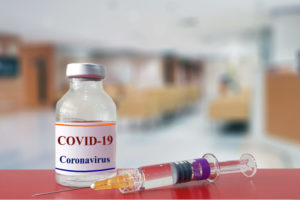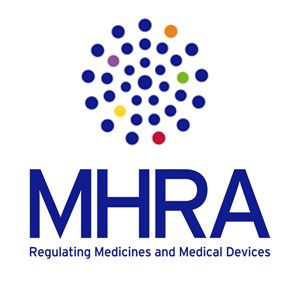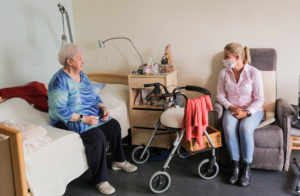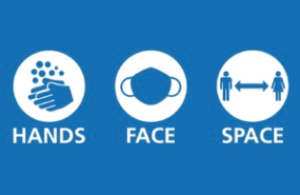 Coronavirus Vaccine - Questions And Answers
Coronavirus Vaccine - Questions And Answers
Our Medical Advisers have issued this information to answer your questions about the new Coronavirus vaccine.
If you would like further information please contact them on 01480 474074 or email.
INFORMATION UPDATED ON 6/9/21
Key Messages About The Vaccine
-
The vaccines are the only way out of the Covid pandemic
-
Covid is a nasty disease which can make people seriously ill and can be fatal
-
The vaccines have been rigorously tested and are safe
-
If you don’t have the vaccine, you have the of risk getting seriously ill with Covid
-
As with all vaccines and medicines, the safety of Covid-19 vaccines are being continuously monitored
-
Public Health England estimates that the UK vaccination programme has prevented 84,000 deaths and more than 23 million infections
-
A booster programme will most likely start in September
What is a vaccine?
A vaccine helps train our bodies to fight a disease and it's seen as a keyway of dealing with the Covid pandemic.
Is Covid-19 virus really that bad?
Yes! Not only can Covid make you seriously unwell and can be fatal, but it can also cause something called “long-Covid”, which is the name given to a number of symptoms that some people experience after being infected with the Coronavirus. These symptoms include:
- ongoing breathlessness,
- being constantly tired,
- memory loss, and
- conditions that affect the nerves in the body.
What is the Delta variant?
Viruses mutate all the time, that’s why the flu vaccine is modified every year for different strains. Covid is no different and has mutated to form different strains or what the scientists call ‘variants’.
The Delta variant is the fourth and most recent ‘variant of concern’. It was first identified in India in October, spreading to other countries around the world, and is now the dominant strain of Covid virus in the UK. It has caused concern because it is more infectious and there is some evidence it may mean you are more likely to be admitted to hospital.
Which vaccines are available in the UK?
The UK’s vaccination programme is being delivered by the NHS who are using three types of vaccine which have been approved for use in the UK. These have been developed by Pfizer/BioNTech, Oxford/AstraZeneca and Moderna.
The Janssen vaccine will be available later this year.
More vaccines are being developed but haven’t yet been approved.
Should we be worried the vaccines were produced so quickly?
No. We are in global pandemic and millions of pounds were pumped into finding a vaccine along with lots of hours of research. The vaccines have still gone through all the safety checks any other vaccine would go through. It is the red tape that has been cut and not any attention to the safety of the vaccines.
Most vaccines take around 10 years to come to market, but this is because there is not usually the urgency of a global health crisis.
How are the vaccines given?
The vaccine is given as an injection into your upper arm or can be given in the leg if you are upper limb affected.
What is the interval between vaccines?
The interval between doses of the vaccines has been reduced from 12 weeks to 8 weeks.
How many people in the UK have been given the vaccine?
47 million people have had a first vaccine dose - nearly 90% of the adult population - and more than 40 million - almost 76% of adults - have had both doses.
How much protection do the vaccines give?
Several studies of vaccine effectiveness have been conducted in the UK which indicate even just a single dose of either vaccine is between 55 and 70% effective against getting Covid and developing symptoms, with higher levels of protection against severe disease including hospitalisation and death. Additional protection is seen after a second dose. There is now also evidence from a number of studies that the vaccines are effective at protecting against infection and transmission.
Vaccine effectiveness against dying (mortality) with 2 doses of the Pfizer vaccine is around 95 to 99% and with 2 doses of the AstraZeneca vaccine around 75 to 99%. Moderna vaccines are similar at around 95% effective against severe disease.
Do they work against the Delta variant?
Analysis by Public Health England shows that 2 doses of Covid vaccines are highly effective against being admitted to hospital from the Delta variant.
Two doses of the Pfizer/BioNTech or Oxford/AstraZeneca vaccine are estimated to be 96% and 92% effective against being admitted to hospital with the Delta variant, respectively.
How does it work?
Most vaccines work by giving you a dead bit of the virus and because it’s dead, the virus can’t cause you harm. The dead bit of the virus is usually something called a “spiky protein” which is a tiny part of the virus. When you are given the dead bit of virus in a vaccine, your body forms an army of protection against it which includes special cells that can fight infection. So, when your body faces the real virus, you already have this army of protection ready to fight off the virus, before it takes hold.
The Pfizer vaccine is different. It is a new type of vaccine and involves giving your body something called a genetic code. This genetic code is like an instruction manual, so that your body can make the spiky protein itself. Your body then goes on to form the same army of protection against the virus, just like a regular vaccine.
The Moderna vaccine works in a similar way to the Pfizer vaccine.
The Astra Zeneca vaccine works like some other vaccines already on the market against other viruses.
Are the vaccines safe?
 Any Covid vaccine that is approved must go through all the strict clinical trials and safety checks all other licensed medicines go through. The MHRA is the special organisation in the UK that makes sure vaccines and medicines are safe for the public. After spending months going through thousands of pages of data, they are confident the vaccines are safe and effective.
Any Covid vaccine that is approved must go through all the strict clinical trials and safety checks all other licensed medicines go through. The MHRA is the special organisation in the UK that makes sure vaccines and medicines are safe for the public. After spending months going through thousands of pages of data, they are confident the vaccines are safe and effective.
What about the risk of blood clots with the vaccines?
There have been reports of an extremely rare but serious condition involving blood clots and unusual bleeding after people were given the Oxford/AstraZeneca (AZ) vaccination. Some people have suffered life changing effects and some have died. These cases are being carefully reviewed but the risk factors for this condition are not yet clear.
Although this condition remains extremely rare there is a higher risk in people after the first dose of the AZ vaccine. To date and overall, just over 10 people develop this condition for every million doses of AZ vaccine given. This is seen more often in younger people and tends to occur between 4 days and 4 weeks following vaccination.
The Joint Committee on Vaccination and Immunisation (JCVI), which advises UK health departments on immunisation, has advised that for people under 40 without other health conditions it is preferable for them to have the Pfizer/ BioNTech or Moderna vaccines. This is because they are at less risk of covid.
It’s important to say that the risk of a blood clot is extremely small but your chance of getting Covid and being seriously ill is high if you don’t get vaccinated.
Can I have the vaccines if I have a history of allergy?
Anyone with a previous history of allergic reactions to the ingredients of the vaccine should not receive it, but those with any other allergies (such as a food allergy) can now have the vaccine.
Widespread use of the vaccine now suggests that severe allergic reactions to the Pfizer/BioNTech vaccine are very rare. Anaphylaxis, which is a life-threatening allergic reaction, can also be a very rare side effect associated with most other vaccines, not just the Covid vaccines.
I have previously experienced immediate onset anaphylaxis to a food/identified medicine. Can I have a Covid vaccination?
The Green Book has the latest information on vaccines and vaccination procedures, for vaccine preventable infectious diseases in the UK.
The latest information in the Green Book states vaccination can proceed as normal in individuals who have had:
- previous allergic reaction (including anaphylaxis) to a food, insect sting and most medicines (where the trigger has been identified),
- family history of allergies,
- previous non-systemic reaction to a vaccine,
- hypersensitivity to nonsteroidal anti-inflammatory drugs e.g. aspirin, ibuprofen
mastocytosis.
Are there possible side effects?
Yes, like with absolutely any medication, there are possible side effects, but these have to be balanced against the risk of getting seriously ill with Covid and long-term effects of the virus that can occur even in those who get it mildly.
Most side effects of vaccines are mild and should not last longer than a week. They are very similar to the side effects you get from the flu vaccine, these include:
- a sore arm or leg where the needle went in,
- feeling tired,
- a headache,
- feeling achy.
Should I have the vaccine?
Covid is a very nasty disease, it can make people seriously ill. More than 130,000 people have died from Covid in the UK. It can also leave you with long term illness, even if you have a mild case.
It tends to be worse for older people and for those people who have other diseases and who smoke.
You need to balance the small risk of the vaccine or the huge risk of being seriously ill with Covid and it's long-term effects
We do know that protection from the vaccine seems stronger and seems to last longer than after the virus itself. Hence, you need to consider that you may get the virus more than once if you don’t have the vaccine and if you do have the vaccine you will need a booster dose.
Who will get a booster coronavirus vaccine first - and when?
The UK government plans to give booster Covid jabs to the most vulnerable groups from September.
The current vaccines have been shown to give good protection against severe disease for at least six months, and there is also evidence of longer-lasting protection.
What is stage 1 of the booster programme?
The following people will most likely be offered a booster vaccine and the annual flu vaccine as soon as possible from September 2021, although timings and groups are still being finalised:
- Adults aged 16 and over who are immunosuppressed
- People living in residential care homes for older adults
- All adults aged 70 and over
- Adults aged 16 and over who are clinically extremely vulnerable
- Frontline health and social care workers

I haven’t had the vaccine-is it too late to get it now?
It’s not too late to get the vaccine. You can book a vaccination appointment here.
Would the Medical Advisers at the Trust have the vaccinations?
Both Medical Advisers at the Trust have been double vaccinated.
Further information
Coronavirus – Guidance And Support From The Trust

